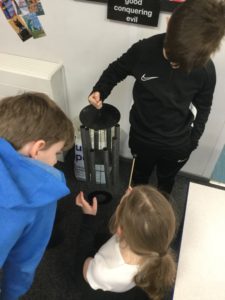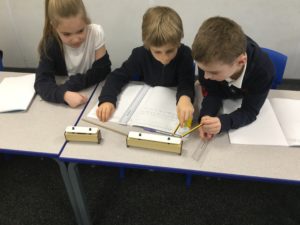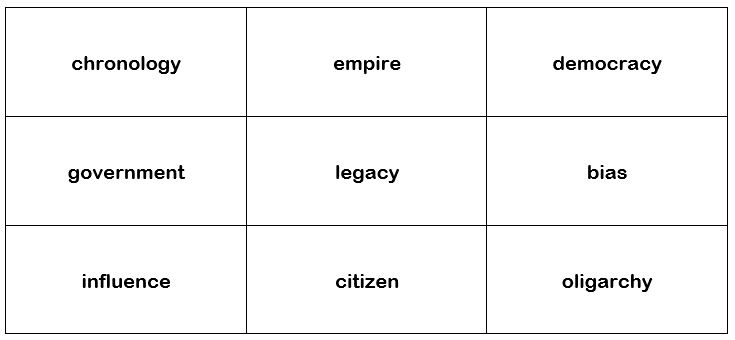Hi everyone
We hope you’re all well and managing to stay happy, healthy and safe. We hope to see you soon and we want you to know that you’re still a hugely important part of our school community.
Before you get started, here’s a little video from Mr Catherall.
And here’s your home learning for this week…
Maths
This week’s maths learning is linked to multiplication.
Year 4 children use these resources:
You don’t have to print the worksheet. Your child can write or draw their answers on paper. Your child’s learning will be most effective if you sit with them to pause the clip and check / praise / support your child as the clip moves on.
Practise times tables on Times Table Rockstars, too. If your child is in Y3, we’re concentrating on the 3 times table. If your child is in Y4, we’re concentrating on the 8 times table. Email the class teacher if you need your child’s login and password details.
(Suggested time: 30 minutes of Maths and 15 minutes of Rockstars daily)
Spelling
Look on the homework page to find this week’s spellings. They should choose some past spellings that they feel less confident with. Your child should complete one task each day.
- Day 1: Generate more words linked to the spelling pattern or ‘rule’. You could look out for the words in the book you’re reading at home, or any other text, like a website linked to our science topic of Living Things and their Habitat.
- Day 2: Practise the spellings using two of the ideas in our Super Spelling Strategies guide. (Set yourself and others at home a challenge of using some of the words when you’re speaking, too!)
- Day 3: Write separate sentences, each containing one of the spellings. (Don’t forget to show off really neat handwriting and make sure you sentence starts with a capital letter and ends with a full stop, exclamation mark (!) or question mark (?).
- Day 4: Repeat Task 2 or 3.
- Day 5: Get an adult at home to test you on your spellings. Practise any you spell incorrectly – you could write them out carefully until you’re sure.
(Suggested time: 15-20 minutes daily)
Reading fluency
This is the text we’re using in class this week to build up fluency skills.
In school, we generally follow this sequence:
- Day 1: Read the text aloud with your child listening. Read it clearly and slowly, pointing to each word as you read. Have a chat about any unfamiliar words.
- Day 2: Read aloud each sentence (a full short sentence or part of a longer sentence), and have your child read it back to you. Do this ‘echo reading’ for the whole text.
- Day 3: Read the text and talk about the effect of the punctuation on how you read it – pauses for full stops and expression for exclamations (!) or questions (?). Your child reads the text aloud.
- Day 4: Read together with expression (just like you practised on Day 3).
- Day 5: Your child reads independently and fluently.
(Suggested time: 15 minutes daily)
Reading comprehension
Day 1: We’ll be using this ‘RIC’ text in class to practise comprehension skills. RIC stands for:
- Retrieve: finding information in a text
- Interpret: using clues in the text to unlock information
- Choice: thinking about the author’s choice of words, techniques or organisation that make the text interesting and enjoyable to read
Day 2: Agree with your child three words from any text they’ve read which they’re less familiar with. Your child should find out what they mean (eg by checking an online dictionary or simply discuss with you) and how to use them in sentences (both when speaking and when writing). Challenge your child to write a sentence with each word in, or to drop the words into conversations at home.
Day 3: Read this article from First News, a newspaper for children, and complete the activity.
Day 4: Read your fluency or RIC text again. Next, do one of the following:
- Your child could list at least ten facts they’ve read in the text. (If it’s a fiction text (a story), then the facts would be based on the story, like ‘Harry Potter picked up his broomstick’, rather than actual facts from the real world.)
- Your child could create questions and answers for what they’ve read. (For example, it could be a TV or radio interview based on what they’ve read.)
- Your child could create their own ‘RIC’ questions.
- Your child could draw and label a character or setting that they’ve read about.
Day 5: Book Club. Once a week, we have a relaxing lesson where we sit and read quietly, often with an adult. At home, we’d like you to read your favourite book or text, too. If possible, discuss the book with an adult, talking about some or all of the sections of this sheet.
(Suggested time: 30 minutes daily)
Writing
Activity 1: This lesson about identifying the features of a report links to some of the learning that we’ve been doing in class recently.
Activity 2:
Children should write six sentences about a picture or photograph you choose. Your child should remember capital letters, finger spaces, joined up letters (use our handwriting guide to help, paying particular attention to tall letters and letters that go beneath the line), and a full stop, exclamation mark (!) or question mark (?) to end the sentence. Encourage interesting words to make their writing more interesting.
(Suggested time: 30 minutes daily)
Topic
This week’s topic learning is all about our history topic: Ancient Greece. This video lesson from Oak National Academy links to some of the learning we’ve been doing in class recently.
(Suggested time: 30-45 minutes)
Science
We’re continuing our learning about sound (physics). This week, we’re learning all about what sound is.
Have a go at this Oak National Academy video.
(Suggested time: 30-45 minutes)










